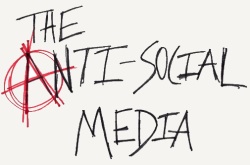![Facebook Emotions Facebook Emotions]()
I want to know which genius thought of Facebook emotions so I can kick his or her ass.
Facebook emotions are little addendum’s you can add to your Facebook status. You might say, “I’m feeling happy!” or “I’m feeling sad.” Others many get more creative and say, “I’m feeling nonchalant.” Still others might cross the line with things like, “I’m feeling you.”
These can also be expanded to illustrate the media you are consuming, such as movies, TV, or books.
Color me unimpressed with this new “feature.”
LiveJournal had emotions in 2003. Clearly, we are advancing the technology of our times by harkening back to the past. My life was so much better when my friends new how I was feeling when I tapped out a typo-laden journal entry and tagged it with “Feeling Stressed.”
In a word where we are seeing media compress into free-flowing streams of micro-media, this is just another shameless attempt gather data to serve more ads. I’ve already seen some ads using this. When I was productive, I immediately got an ad for productivity software.
I wonder if people who are sad get ads for alcohol. Or antidepressants. Maybe they just get ads for ice cream and Oreos.
Sigh.
One more thing to update. One more message to share. All in pursuit of the perfect ad targeting.
Do you use Facebook emotions? Do you like them?
Let me know. I want to “feel informed” next time I go on Facebook.
